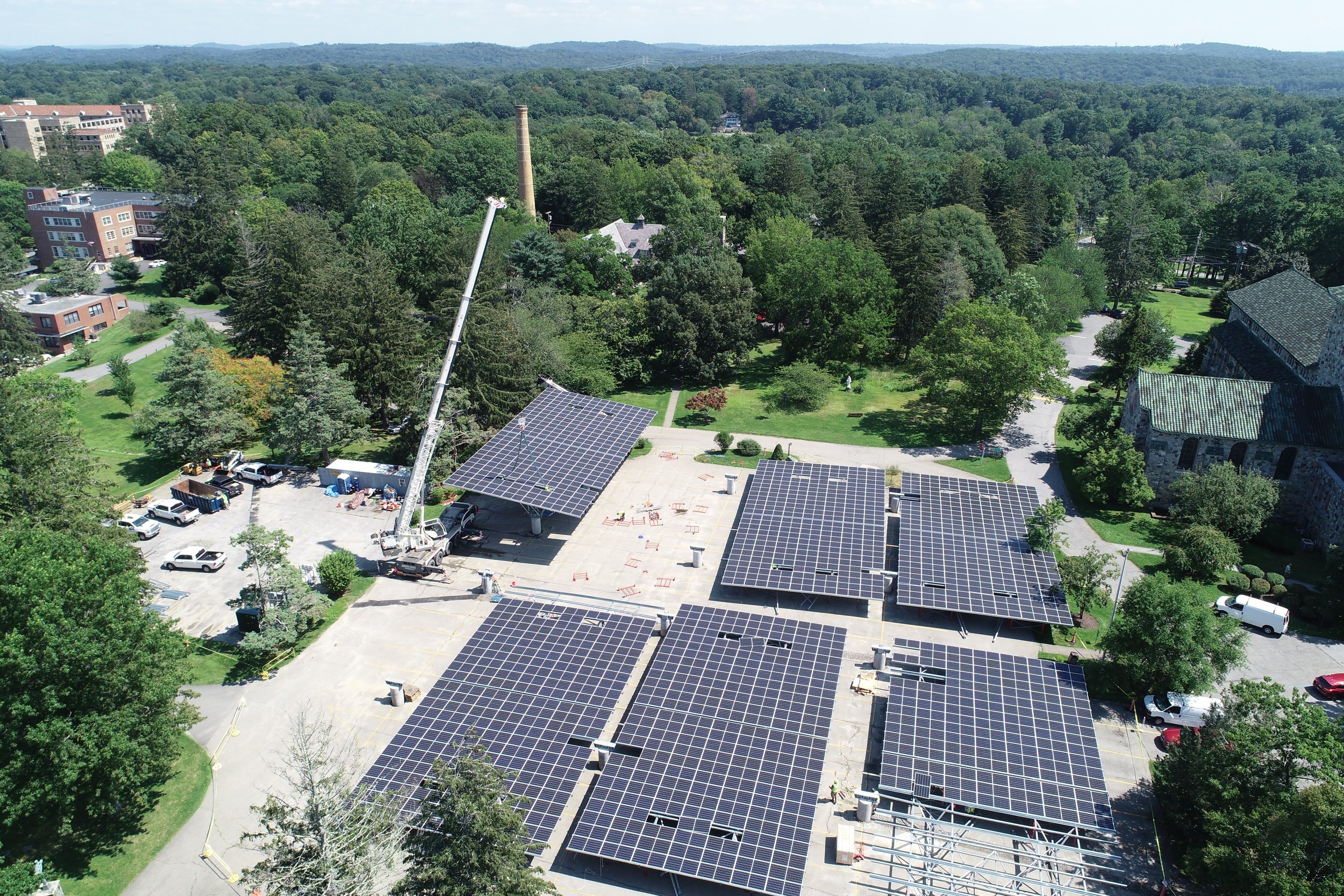Traceability, timing, and domestic manufacturing dominate conversations
At first, procurement might sound like a boring part of the solar development process, compared with innovations in technology and financing that have spurred the greatest energy revolution since the 19th century. In reality, the story of solar procurement is one of international drama, ethical landmines, and policy battles that has major implications for the success of solar energy at large.
Solar modules, racking, and inverters all need to be sourced and purchased before installation at a project site. Although the process has always been dynamic, recent legislation in the United States has dramatically upended the solar procurement landscape. New incentives have pushed developers like Ecogy toward purchasing American-made solar components, radically changing the procurement calculus.
The Inflation Reduction Act (IRA) of 2022 has spurred the development of clean energy in numerous ways, but one particularly meaningful action was the expansion in timing and scope of the major tax credits known as the Production Tax Credit (PTC) and the Investment Tax Credit (ITC). These credits by themselves increase the economic feasibility of renewable energy development by bringing down the total cost of projects. But in 2023, an addition to the credits, known as an “adder,” was made available. This adder gives an additional 10% tax credit to projects for which 40% of total materials spending is on domestically produced goods.
A row of solar inverters
American made solar components generally cost more than their foreign-produced counterparts. However, in many instances the 10% adder to the PTC and ITC tips the scales to ultimately make domestic components more economical than foreign components. Suddenly, the choice between purchasing domestic or foreign made solar components has become a major part of the procurement conversation.
However, domestic manufacturing remains just one piece of the procurement puzzle. A related issue that solar procurement professionals consider on a daily basis is the traceability of the goods they need. For ethical and compliance reasons, developers like Ecogy are extremely vigilant in their efforts to ensure that there is no forced labor in the supply chain of the components they acquire.
The particular materials breakdown of goods like modules is also important to ensure that they are of the highest quality. And now, with incentives to purchase domestically-manufactured goods, developers are keen to be able to demonstrate the precise percentage of their project that is domestically manufactured. Traceability has become doubly important.
Timing is another crucial slice of the procurement pie. Of course, it is of interest to developers like Ecogy that the goods they procure arrive on time for construction. Increased domestic procurement should ease tensions here because domestically produced goods are not at risk of being held up at port. However, timing goes the other way around, too.
Developers must accurately forecast the timing of projects on their end. This is to ensure that they don’t end up purchasing and receiving goods that they’re not ready to use. That risk has the potential to increase costs for both developer and supplier. Ecogy has developed state of the art forecasting technology, part of its proprietary EcoSuite, that allows it to minimize these costs. The resulting savings are passed on to our partners in the form of higher rent payments on our site leases.
Construction underway at Ecogy’s Maryknoll project
Incentives like the ITC and its 10% adder also translate to higher rent payments for our customers. This is true in an immediate way—a tax credit means the cost of a system is ultimately lower, which means Ecogy has more money to offer to our partners, but also in an indirect, infinitely compounding way. By improving the individual economics of numerous projects across the board, many more projects become feasible. This translates into more projects built, which translates to additional credibility when approaching suppliers, who, for timing reasons, are deeply invested in their purchasers’ reliability.
As more projects become feasible due to these governmental incentives, developers like Ecogy also gain the advantage of economies of scale. Making bulk orders for multiple projects at a time brings down unit costs, allowing us to maximize the economic benefits to our partners and offer more attractive value propositions to prospective partners. It’s a positive feedback loop that continues indefinitely.
Unfortunately, the IRA and its attendant tax credits are under threat in Congress, as a contingent of lawmakers attempt to defeat the IRA in response to the recent debt ceiling crisis. Additionally, a group of lawmakers has proposed legislation that would undo many of the expansions of the PTC and ITC. These recent events point toward the continued need for companies and constituents to advocate for policies favorable to the development of clean energy.
Riana Erickson, Ecogy’s own procurement manager, reiterates the importance of the IRA. “Embracing the influences of the IRA and shifting towards purchasing domestically manufactured solar equipment is a catalyst for success, bringing a multitude of benefits to the forefront,” she says. “It fosters economic growth by creating jobs, supporting local industries, and bolstering supply chains. Moreover, it ensures quality control, timely delivery, and fosters innovation, enabling us to build a sustainable future from within our borders. By procuring domestically, we forge a path towards self-reliance, resilience, and prosperity, while strengthening our communities and leaving a lasting positive impact on our nation.”



